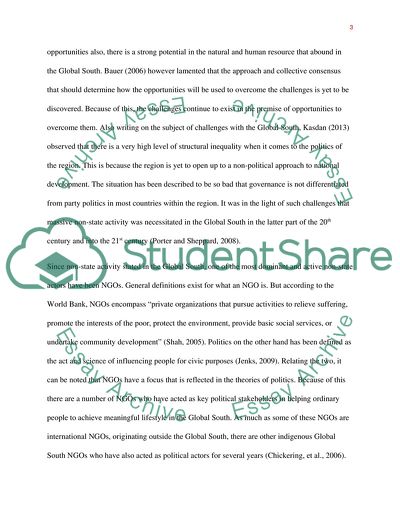Cite this document
(Non-Governmental Organisations as Major Political Actors Essay Example | Topics and Well Written Essays - 2500 words, n.d.)
Non-Governmental Organisations as Major Political Actors Essay Example | Topics and Well Written Essays - 2500 words. https://studentshare.org/politics/1827171-evaluate-the-advantages-and-disadvantages-of-non-governmental-organisations-as-major-political-actors-in-the-global-south
Non-Governmental Organisations as Major Political Actors Essay Example | Topics and Well Written Essays - 2500 words. https://studentshare.org/politics/1827171-evaluate-the-advantages-and-disadvantages-of-non-governmental-organisations-as-major-political-actors-in-the-global-south
(Non-Governmental Organisations As Major Political Actors Essay Example | Topics and Well Written Essays - 2500 Words)
Non-Governmental Organisations As Major Political Actors Essay Example | Topics and Well Written Essays - 2500 Words. https://studentshare.org/politics/1827171-evaluate-the-advantages-and-disadvantages-of-non-governmental-organisations-as-major-political-actors-in-the-global-south.
Non-Governmental Organisations As Major Political Actors Essay Example | Topics and Well Written Essays - 2500 Words. https://studentshare.org/politics/1827171-evaluate-the-advantages-and-disadvantages-of-non-governmental-organisations-as-major-political-actors-in-the-global-south.
“Non-Governmental Organisations As Major Political Actors Essay Example | Topics and Well Written Essays - 2500 Words”. https://studentshare.org/politics/1827171-evaluate-the-advantages-and-disadvantages-of-non-governmental-organisations-as-major-political-actors-in-the-global-south.


